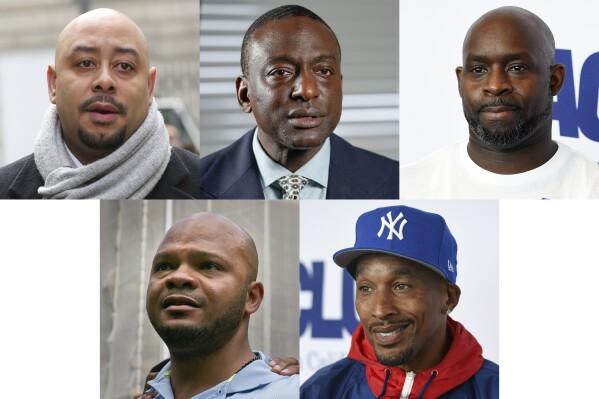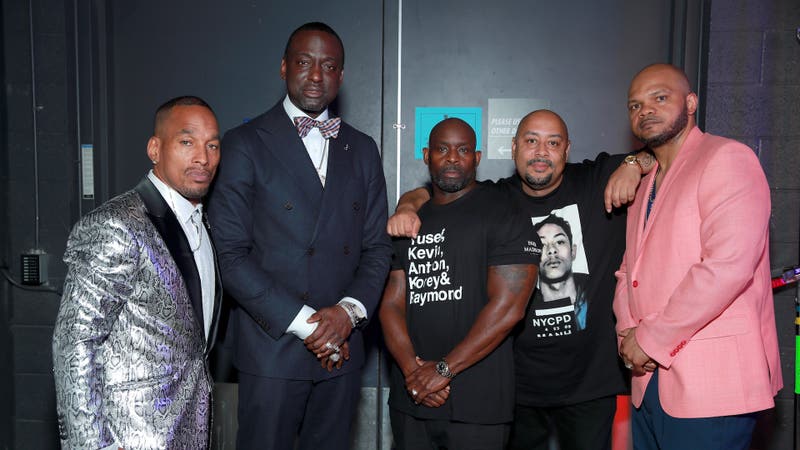The five men wrongfully convicted in the 1989 Central Park jogger case have filed a defamation lawsuit against Donald Trump over false statements he made during last month’s presidential debate. The plaintiffs, who spent between five and 13 years in prison before being exonerated in 2002, are seeking damages for what they describe as “demonstrably false” claims.

Yusef Salaam, now a New York City Council member, Raymond Santana, Kevin Richardson, Antron Brown, and Korey Wise filed the lawsuit in Philadelphia federal court following Trump’s September 10 debate with Vice President Kamala Harris. During the debate, Trump falsely claimed that the men had killed someone and pleaded guilty.
The lawsuit, filed through attorney Shanin Specter, argues that Trump’s remarks “cast them in a harmful false light and intentionally inflicted emotional distress.” Specter emphasized that the legal action is not politically motivated, stating, “I’m not commenting on politics. We are seeking redress in a court of law.”
Trump’s campaign responded by dismissing the lawsuit as “just another frivolous, election interference lawsuit, filed by desperate left-wing activists.” This latest legal challenge adds to Trump’s history of controversial statements about the case, including his 1989 full-page newspaper advertisements calling for the reinstatement of the death penalty.

The five men were exonerated in 2002 based on DNA evidence and the confession of another individual. Despite their vindication, Trump has consistently refused to apologize for his past statements about the case, including as recently as 2019.
This lawsuit comes as Trump faces other legal challenges, including a recent $83.3 million jury verdict in favor of E. Jean Carroll for defamation, and his ongoing appeal of a separate $5 million verdict in a sexual assault and defamation case.
The Central Park Five are seeking unspecified monetary damages for reputational and emotional harm, as well as punitive damages. Their case highlights ongoing issues of racial justice, wrongful conviction, and the impact of public figures’ statements on exonerated individuals.



